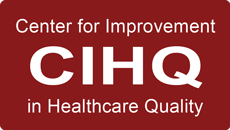
As healthcare professionals, we know the importance of maintaining licensure and continuing education, demonstrating competencies, and complying with organizational policies - it is all part of the job. Periodically, the human resources department verifies our license renewal, oversees competency evaluations and performance reviews, but what about practitioners? What review process allows a practitioner to continue providing care to patients in the hospital? For practitioners, this process is known as an appraisal. The Condition of Participation (COP) standard for practitioner appraisals at §482.22(a)(1) forms the basis of this discussion.
The purpose of the appraisal is for the medical staff to evaluate each individual practitioner’s qualifications and current competence to perform clinical privileges granted by the governing body. An appraisal is required for all practitioners appointed to the medical staff and/or granted privileges. Regardless of medical staff membership, any practitioner who provides any type of patient care must have appropriate clinical privileges and undergo the appraisal process.
Frequency
- In the absence of a state law that establishes a timeframe for periodic appraisal, CMS requires the medical staff periodically conduct an appraisal of each privileged practitioner at least every 36 months.
Privileges
- Core Privileges: The appraisal must evaluate each individual practitioner’s qualifications and demonstrated competencies to perform each task / activity within the applicable scope of practice and privileges for that specific type of practitioner.
- Additional Privileges: Any privilege requested by a practitioner that goes beyond the specified list of privileges for that category of practitioner requires an appraisal by the medical staff and approval by the governing body.
- Hospital Services: Regardless of the individual practitioner’s ability to perform the activity/task/procedure, the privilege cannot be granted for procedures/activities that are not conducted and supported by the hospital.
Qualifications/Competencies
- The appraisal must consider evidence of qualifications and competencies specific to the nature of the requested privilege.
- The qualifications and demonstrated competencies must include evaluating the practitioner has:
- Maintained all required credentials, training, and education – including any specialized education
- Demonstrated acceptable work practices and quality of work
- Abided by the medical staff bylaws, rules, regulations, and policies
- Experienced no peer review activities resulting in a determination that the practitioner significantly deviated from accepted standards of care
- Met the criteria established for granting of clinical privileges, including specific criteria for selected privileges
Documentation/Communication
- A separate credentials file must be maintained for each practitioner.
- The hospital must inform the practitioner of the privileges granted to the practitioner, as well as of any revisions or revocations of the practitioner’s privileges.
- The hospital must inform the appropriate hospital patient care areas/departments of the privileges granted to the practitioner, as well as of any revisions or revocations of the practitioner’s privileges.
- Whenever a practitioner’s privileges are limited, revoked, or in any way constrained, the hospital must, in accordance with State and/or Federal laws or regulations, report those constraints to the appropriate State and Federal authorities, registries, and/or data bases, such as the National Practitioner Data Bank.
Governing Body
- After the medical staff conducts its appraisal of individual practitioners, the medical staff makes recommendations to the governing body to continue, revise, discontinue, limit, or revoke some or all the practitioner’s privileges. The governing body makes the final determination.
Now you know – That’s the appraisal process required by CMS that allows practitioners to maintain privileges and continue providing care to patients in the hospital.
Reference
Center for Medicare and Medicaid Services. (2020). State Operations Manual, Appendix A – Survey Protocol, Regulations, and Interpretive Guidelines for Hospitals. Retrieved from cms.gov
Center for Medicare and Medicaid Services. (2020). State Operations Manual, Appendix A – Survey Protocol, Regulations, and Interpretive Guidelines for Hospitals. Retrieved from cms.gov
Curtis, R. (2021, January 26). Understanding the New CIHQ Medical Staff Standards. [Webinar]. Center for Improvement in Healthcare Quality. https://cihq.org/
